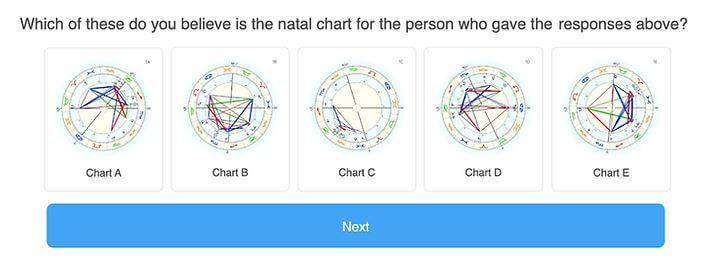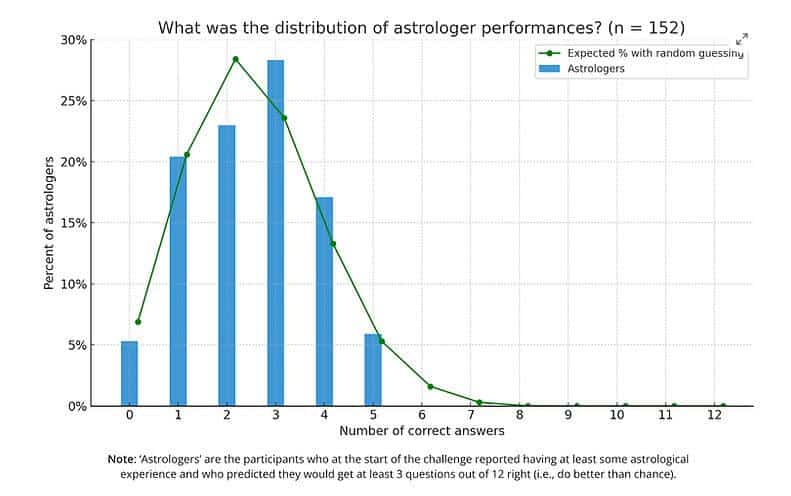Polling suggests a third of people believe in astrology and a further sixth of the population is unsure. Yet despite this popular appeal, there is little professional benefit to scientists from getting involved in investigating a subject like astrology.
The challenge was recently taken up by science advocacy organisation Clearer Thinking. The group spends much of its energy on checking the replicability of psychology research.
How did they approach astrology? The researchers initially ran a fairly simple study comparing 308 individuals’ astrological sun signs with their survey responses regarding 37 different “life outcomes”. These included life satisfaction, household income, political alignment, sociability, professional success, religiosity, alcohol consumption, community participation, consumer debt, criminality, BMI, and so on.
The researchers then ran a linear regression analysis on the data. Unsurprisingly, the researchers found the sun signs have “zero predictive capacity.”
Then it got interesting. Astrologers were incensed when the results went out. They argued that “sun signs are just tabloid astrology – real astrologers use much more complex systems involving a person’s entire astrological chart.”
The researchers were game and designed a new study. They created 12 profiles of individuals based on their responses to 43 survey questions about their life. Then they asked astrologers to match the person to their “entire astrological chart,” giving them five options to choose from for each individual’s profile. The first astrologer to match 11 out of 12 individuals with their correct astrological chart would win a $1,000 cash prize.

Across the 152 astrologers who took the test, an average score of 4 or more answers correct out of 12 would provide evidence that astrology has some predictive value. On random chance, an astrologer would get 2 or 3 correct out of 12.
You can see the results below. The $1,000 prize remains unclaimed.

Yet perhaps even more telling was that the astrologers could not agree amongst themselves on which was the correct natal chart. They were not getting the answers wrong in a consistent way, but rather their agreement with one another was scarcely above the level of randomness itself.
With both far-left and far-right politics creating more uncertainty than ever about what counts as knowledge, internal coherence among practitioners is a crucial indicator of whether there is something of value in a non-scientific knowledge system.
Thumbnail image courtesy of @jsr1 via Unsplash.
Sign Up To Our Free Newsletter